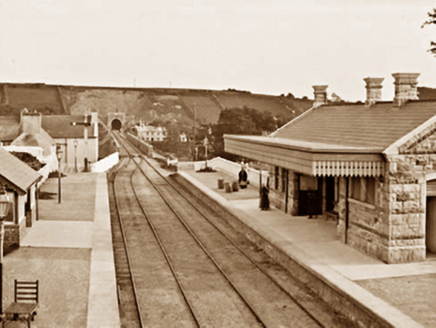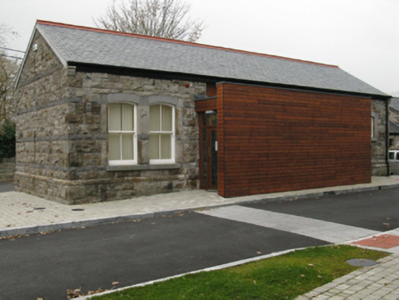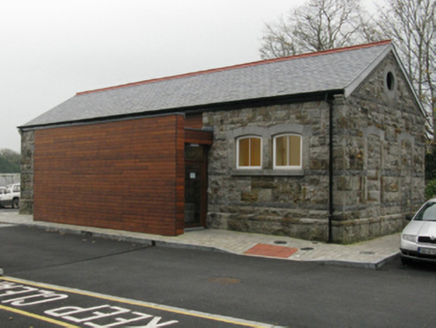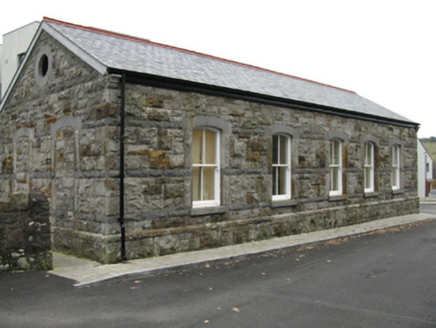Survey Data
Reg No
31208015
Rating
Regional
Categories of Special Interest
Architectural, Historical, Social
Original Use
Railway station
Historical Use
House
In Use As
Office
Date
1890 - 1895
Coordinates
98454, 293986
Date Recorded
04/08/2011
Date Updated
--/--/--
Description
Detached three-bay single-storey railway station, opened 1894; extant 1897, on a rectangular plan with five-bay single-storey rear (west) elevation. Closed, 1934. Reopened, 1936. Closed, 1937. In alternative use, 1968. In alternative use, 2001. Extensively renovated, -----, to accommodate alternative use. Replacement pitched slate roof with roll moulded terracotta ridge tiles, coping removed retaining cut-limestone "Cavetto"-detailed beaded kneelers, and cast-iron rainwater goods on timber boxed eaves with cast-iron downpipes. Rock faced cut-limestone-banded tuck pointed snecked rock faced limestone walls on rock faced cut-limestone chamfered cushion course on plinth with drag edged rock faced cut-limestone flush quoins to corners. Paired camber-headed window openings with camber-headed window openings to rear (west) elevation, cut-limestone sills, and drag edged rock faced cut-limestone surrounds supporting cut-limestone archivolts framing two-over-two timber sash windows. Set in relandscaped grounds.
Appraisal
A railway station identified as an integral component of the late nineteenth-century built heritage of Newport on account of the connections with the extension of the Mayo Branch of the Midland Great Western Railway (MGWR) line (opened 1894) by the Midland Great Western Railway (MGWR) Company with the architectural value of the composition suggested by such attributes as the compact rectilinear plan form; and the rock faced surface finish offset by sheer limestone dressings not only demonstrating good quality workmanship, but also producing a pleasing two-tone palette. Having been successfully repurposed following a prolonged period of neglect in the aftermath of the closure of the line under the Great South Railways (Westport-Achill) Termination of Railway Services Order, 1934, the elementary form and massing survive intact together with quantities of the original or sympathetically replicated fabric, thereby upholding much of the character or integrity of the composition.







